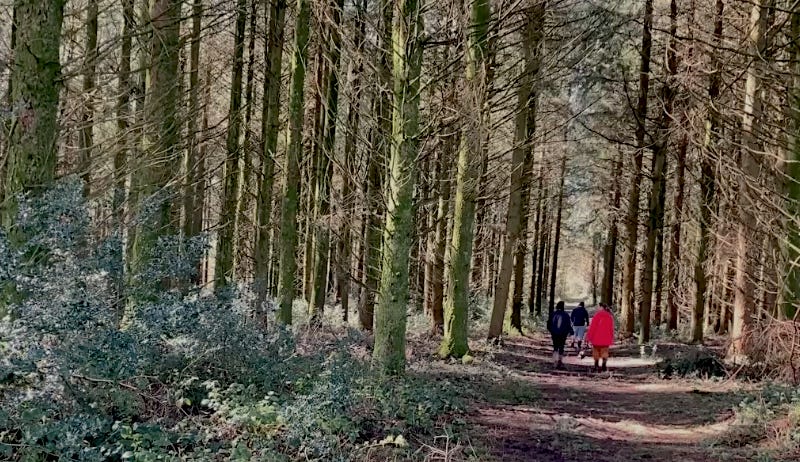The paths steadily became narrower and more haphazard as we advanced further into the woods. We had already taken one branch that looked promising, only to come to an abrupt halt at an impenetrable tangle of brambles.
As we walked we squelched, the tracks muddy from the weeks of downpour and the imprint of previous walkers and cyclists. The dogs, running back and forth, chased each other through the puddles before turning to lap up the murky rainwater.
Up ahead, reaching the treeline, our friends consulted their phones. Turning right was clearly the correct choice. Until it plainly wasn’t, and with shared laughter we began retracing our steps. In a small clearing we passed a collection of beehives, the bees silent and secure within their wooden towers. Then, a little further on, an opening in the hedge to allow us back into the wood.
And there, in front of us, a long, straight path, like the nave of a cathedral with, at that moment, shafts of sunlight pouring down through the canopy. We’d found the path we needed.
We need to retain the ability to get lost. After all, how else will we be found, or find our way? Like the old Zen saying: ‘You should sit in meditation for 20 minutes a day—unless you're too busy; then you should sit for an hour.’
It's the wind blowing free, it's the end of a slope.
It's a beam, it's a void, it's a hunch, it's a hope
And the riverbank talks of the waters of March.
It’s the promise of life, it's the joy in your heart.
Águas de Março, Antonio Carlos Jobim


